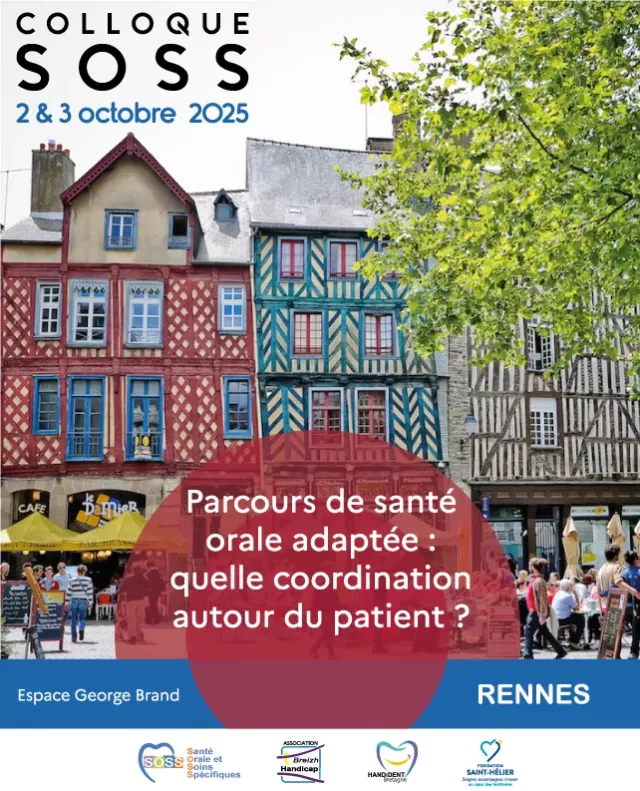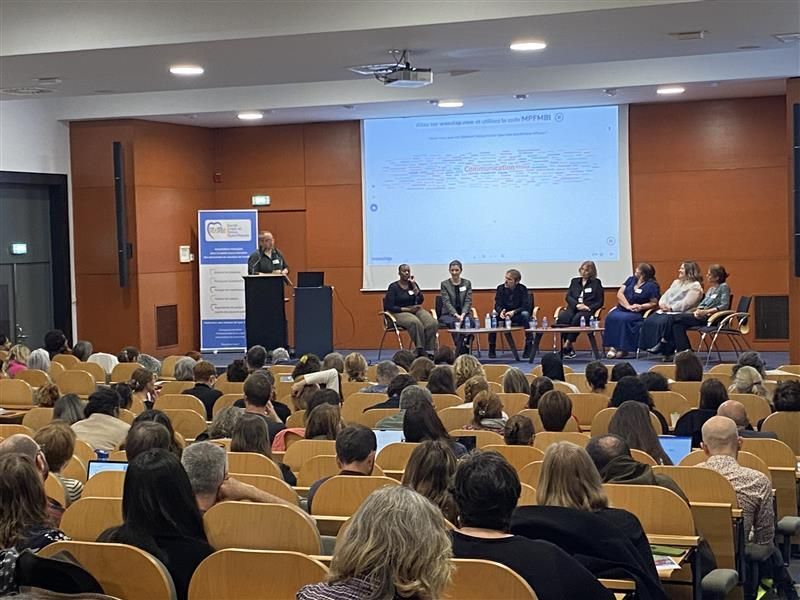health science prize: virtual reality for an inclusive healthcare pathway
The health science prize awarded at the SOSS 2025 symposium in Rennes honors an ambitious project led by the Saint-Hélier Foundation and its partners, including explorations360. The aim is to use virtual reality to help people with disabilities become accustomed to care, reduce anxiety and improve access to care. The consortium has designed a simple-to-deploy immersive experience that prepares, reassures and accompanies patients before their arrival. This award illustrates the power of human-centered innovation, at the crossroads of healthcare, technology and inclusion, with concrete results for healthcare teams and patients alike.

health and accessibility to care scientific prize: why this project stands out
The jury hailed the project's exemplary interdisciplinary approach: the clinical expertise of the Fondation Saint-Hélier, coordination of local players, and the immersive know-how of explorations360. The VR approach targets a specific problem: fear, stress and disorientation in the face of care. By simulating the medical environment in advance, patients discover the sights, sounds and gestures step by step, which encourages them to adhere to the care pathway and reduces refusal of care.
This solution also responds to constraints in the field: limited nursing time, diversity of profiles, and the need for simple tools. The VR habituation protocol has been designed to be replicable, measurable and adaptable to different medico-social and healthcare establishments.
An immersive experience for preparation, reassurance and support
The system is based on 360° contextualized content: reception, waiting room, chair or treatment cubicle, key stages and current interactions. Each module is short, clear and guided. Users can repeat sequences at their own pace, with or without assistance. Caregivers are provided with progressive scenarios, adapted to the person's level of sensory sensitivity and cognitive profile, to secure exposure and reinforce the feeling of mastery.
Objectives being measured on clinical study of VR habituation
- Reduced anxiety signals and improved sensory tolerance.
- Improved appointment predictability and reduced avoidance behaviour.
- Time-saving for teams and a smoother process for patients.
- Increase in the rate of care provided and in the satisfaction of families and caregivers.
Easy-to-deploy VR: the explorations360 method
To maximize adoption, explorations360 favors lightweight, self-contained VR tools that are easy to learn and use. No need for heavy infrastructure or advanced technical skills: an all-in-one headset or smartphone with a viewer is all that's required. 360° content can be accessed offline if required, and a clear interface guides professionals step by step.
Key features for healthcare professionals
- Library of customizable scenarios, adapted to targeted care paths.
- Graduated, customizable progression according to profile and hypersensitivity.
- Follow-up indicators to monitor progress (e.g. exposure time, repetitions).
- Minimal equipment and maintenance, rapid team training.
- Privacy and RGPD compliance in usage management.
SOSS 2025 in Rennes: a conference to advance inclusive oral health
For the past 14 years, the Santé Orale et Soins Spécifiques(SOSS) association has been promoting access to oral health care for people with special needs, whatever their age, place of residence or level of dependency. The 2025 event, held at the Espace Georges Brand in Rennes on October 2 and 3 in conjunction with the Breizh Handicap association, brought together oral health professionals, health and medico-social establishments, people with special needs and their families, networks and associations.
At the heart of the discussions: coordination of an adapted care pathway, accessibility innovations and feedback. In this context, recognition of the project by a dedicated prize underlines the importance of concrete, reproducible and assessable tools. The habituation VR is fully in line with this dynamic of territorial cooperation, at the service of the most vulnerable members of the public.
A committed, interdisciplinary consortium
The success of the project lies in the alliance between clinical expertise, knowledge of the needs of people with disabilities, and user-centered immersive technology. The Saint-Hélier Foundation, explorations360 and the partners involved have co-constructed content as close to the field as possible, with a continuous improvement loop based on feedback from caregivers and families.
What this award means for patients and teams
By promoting this approach, the Prix Scientifique Santé is accelerating the spread of a method that reduces barriers to access to care. For patients, immersive preparation reduces anxiety-inducing novelty and boosts confidence. For teams, it provides structured support, helps standardize the reception stages and enables clinical time to be focused on the essentials. For facilities, it is a lever for efficiency and inclusion, without complicating the organization.
Eventually, this approach will pave the way for VR-integrated pathways for other specialties: imaging, outpatient surgery, rehabilitation, screening or preventive care. It also encourages the sharing of best practices between structures and regions, with poolable content and proven protocols.
Looking for a simple VR tool for your patients?
Whether you're a healthcare facility, a medico-social structure or a private practitioner, you can rapidly deploy a reliable, accessible VR habituation solution designed to meet your day-to-day constraints. explorations360 supports you from scenario definition to implementation, right through to usage monitoring, to guarantee team autonomy and measurable results.
Talk to us about your needs and discover how VR can streamline your care journey: demonstration, advice, and step-by-step deployment. Contact us today to build inclusive and effective immersive experiences.
Request a demo (links at the top of the page)

